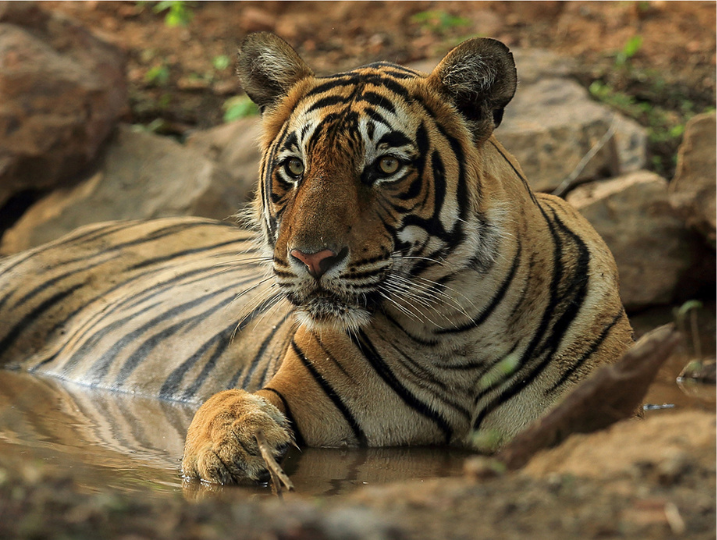How Extinction Affects Human Health & The 10 Ways to Help Endangered Animals

Author : Amal Rahiman
Another tiger has gotten extinct. A microorganism has been wiped off the face of the earth. One more mammal is on the extinction list.
Does anybody care?
No. Everybody has lives to live, bills to pay, and other things to concentrate on. Extinction doesn’t bother me, so who cares?
You should. We all should.
Because extinction affects us all.
Variety is the spice of life, and biodiversity is that spice for Earth. Naturally, a living area has to flourish with a good mix of flora and fauna. The higher the diversity, the better it is in general. Living beings would be healthier, happier, and in sync with nature.
When one living organism, no matter how big or small, disappears from this picture, it creates a domino effect. Their food (if it was bacteria) would grow in numbers, spread diseases, and their predators would starve, which would affect the whole food chain; it would lead to a massive chain reaction that will finally end up affecting life on Earth on a large scale.
And it all started with one single species being extinct.
This is why we should all care about extinction.
One of the major reasons for mass extinction is human invasion. In order to space the growing population, acres of forest land are destroyed to make way for human dwellings. The more humans go deeper into the wild, the more they get exposed to new microorganisms, which could spread diseases. In fact, the current pandemic is an example of how being closer to the wild, or mixing the wild with human life, has led to an absolute disaster. In other words, extinction can make us sicker.
Treating diseases require the use of medicines, both traditional and non-traditional. Both these types of medicines require certain ingredients that we get from nature. They could be an actual virus itself, some bacteria, or some part of plants. Extinction of these species means hindering our path to making medications for these illnesses.
Deforestation and pollution – 2 major contributors to extinction, also affect human life. Our water and air quality go below the required level, and nature loses its natural filters (trees). We are more susceptible to being exposed to impure water and polluted air because we no longer have our natural barrier to defend us. Trees are just that important.
These activities can also lead to the starvation of human life. As more and more forest lands are being used for industrial-level agriculture, we are destroying natural food resources and making land impossible to grow more food. Land once used for agriculture cannot be replenished, leading to more dry and barren lands.
Dry and barren lands mean fewer trees to cool our planet and fewer water resources, resulting in global warming. As we destroy our natural barriers, get exposed to newer microbes, and wipe off the species that feed on these microbes – thereby saving our exposure, we create more problems for ourselves. We are creating huge problems, with no clear solution as to how to solve them.
So, is it really too late?
Maybe not completely. There are a few acts we can do to save our planet. They may be small in action, but every action counts.
Here’s what you can do:
- Educate yourself on what species around you are endangered and spread the word.
- Volunteer and donate to wildlife organizations – participate in clean-up programs, volunteer at a wildlife refuge, and so on.
- Purchase from ethical eco-friendly companies. Never purchase products made from endangered species like ivory, coral, and tortoise shell. It is also illegal to buy/sell products of such materials.
- Make your home wildlife friendly and protect wildlife habitat. Put bird feeders and other wildlife attractants, such as bird houses and bird baths. Grow trees if you have the space.
- Grow native plants. Native plants are food for many local species, including weeds.
- Do not use toxic herbicides and pesticides. Control your weeds, without actually killing them.
- Practice mindful consumption and reduce the amount of pollution you cause
- Recycle and reuse as much as possible.
- Slow down while driving, especially in areas where sighting wildlife is a common occurrence (like seeing monkeys, or deer crossing the road).
- And finally, don’t litter.
It is still not too late to save our planet and help endangered species. Why be at war with the planet that provides for us? Why not simply keep the peace and sustain life for all beings?
Disclaimer: The content provided in this article is provided for information purposes only and is not a substitute for professional advice and consultation, including professional medical advice and consultation; it is provided with the understanding that HerbivoPvt. Ltd. is not engaged in the provision or rendering of medical advice or services. The opinions and content included in the article are the views of the author only, and Herbivo does not endorse or recommend any such content or information, or any product or service mentioned in the article. You understand and agree that Herbivo shall not be liable for any claim, loss, or damage arising out of the use of, or reliance upon any content or information in the article.




